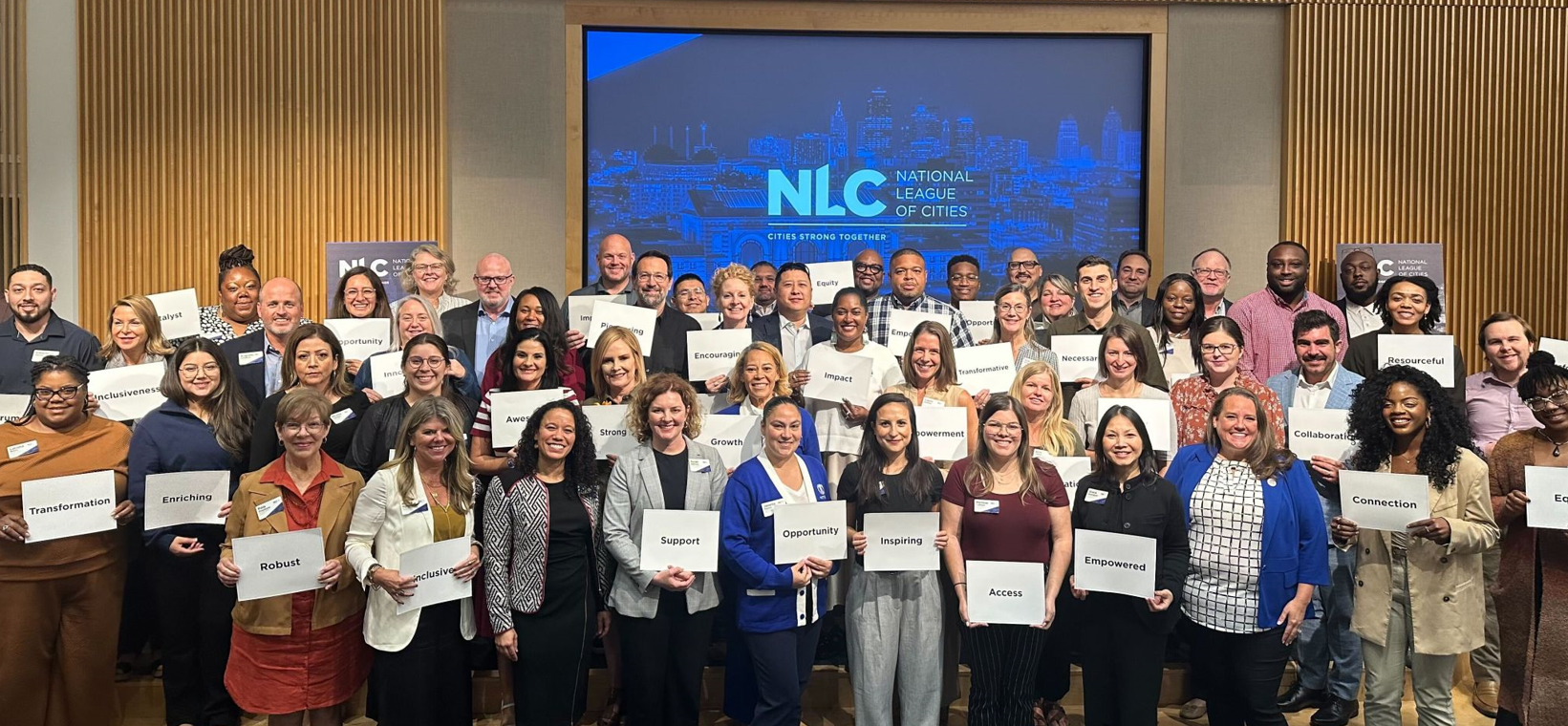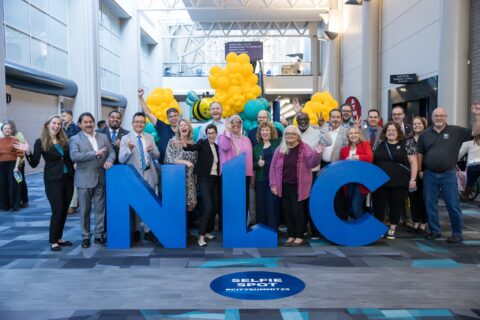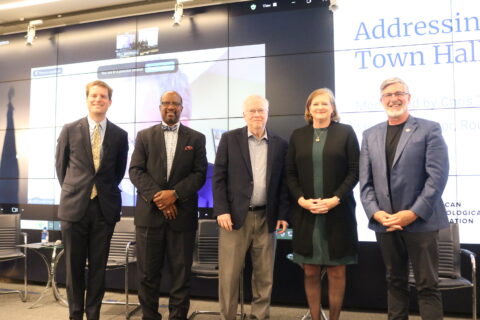Over 100 individuals gathered in Kansas City, MO to celebrate the conclusion of five years of programming and community engagement as part of the City Inclusive Entrepreneurship (CIE) program at the Kauffman Foundation headquarters.
Launched shortly before the start of the pandemic, with several of its regular programming and activities moved to virtual over the years, City Inclusive Entrepreneurship was originally coined as the City Innovation Ecosystems program. It was born from a gathering of the Kauffman Foundation’s Mayor’s Council on Entrepreneurship.
Entrepreneur-led economic development is a key feature of the Kauffman Foundation, and the CIE program was created to provide an avenue to support cities in their work to center the needs of entrepreneurs, especially BIPOC and women entrepreneurs. Throughout its 5-year history, many small business owners and leaders from a variety of underrepresented backgrounds received direct support and funding through the CIE program.
The gathering functioned as both a celebration as well as a bookend of educational content, reflection and participant experiences. Since 2019, more than 240 cities of all sizes shared ideas in cohort-based peer learning networks, received light-touch technical assistance and were invited to apply for grant funding to advance inclusive, entrepreneur-led economic development. The CIE program supported over 300 local partners across communities, and included $300 million in committed resources, with countless entrepreneurs, small businesses, ESOs and municipal departments receiving ongoing benefits from the program.
The Role of Entrepreneurs in Cities
One of the themes from the event was how impactful both entrepreneurship and entrepreneurs are to communities across the U.S.
Entrepreneurship is not just a bipartisan issue; it is a bedrock of community and economic vitality. At a session discussing trends in entrepreneurship and economic development, Right to Start CEO Victor Hwang noted that small businesses — new, mid-aged, old — represent a majority of the net job growth in many communities, and that this concept is not always apparent to both voters and to city leaders: “If there is a 1% increase in entrepreneurship, there is a 2% decrease in poverty (in a given region)”.
City leaders have the opportunity to strengthen their communities by more actively supporting entrepreneurship in their cities; helping to dismantle the stigma that government acts as more of a barrier rather than a boon to starting or growing a business.
Local Perspectives
To offer insights from the entrepreneurs’ perspective, Marvin Carolina, Jr., professor at University of Missouri at Kansas City and a business and career coach, led an engaging panel discussion featuring local Kansas City entrepreneurs: Dr. LaTanya Goodloe, owner of LRG Commercial Contractor and founder of the nonprofit Ladies That Lean, and Racquel Rodriguez, owner of El Café Cubano.
The panel offered valuable insights into the experiences of entrepreneurs and the importance of city support for entrepreneurial initiatives. A key focus was KC BizCare’s offerings, including free or low-cost training sessions and workshops. Additional resources, such as the Network Kansas Empowerment Loan Fund and the Women’s Business Center, were highlighted for their vital roles in providing both funding and education in the administrative aspects of entrepreneurship.
The discussion emphasized the importance of understanding the unique needs of entrepreneurs, many of whom juggle their ambitions with full-time jobs, underscoring the necessity for supportive opportunities. KC BizCare seeks to be a “one-stop shop” for entrepreneurs to build their businesses and streamline permitting and licensing processes, including for native Spanish-speaking entrepreneurs. Their efforts to foster local business growth have led Kansas City, MO to be a thriving community for small businesses, and many CIE cities have learned from KC BizCare’s model in recent years.
Beyond CIE Programming
As the CIE programming comes to a pause, the next and final year of the program will serve as a “learning year.” This phase will provide the opportunity for cities to share the impact CIE has had within their communities and explore how future iterations of CIE — or a similar program — could be structured to better support vibrant economic development. Cities of all sizes rely on such programs to provide the structure and support to execute important initiatives that may be beyond a city’s capacity to lead on their own. Partner organizations, community leaders, and entrepreneurs are essential to economic growth in cities both large and small. The future is bright for cities and entrepreneurs that work together.













